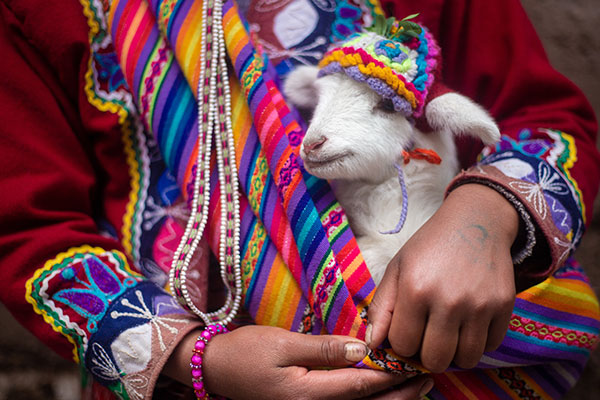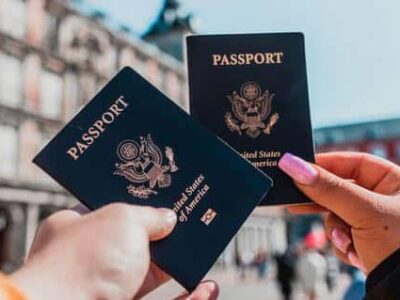After starting your Spanish classes, you now feel that the time has come to plan your backpacking trip through Latin America. If Ecuador is one of the countries you want to visit, this post can be very helpful. We present you with 15 Ecuadorian words and 15 Ecuadorian expressions that you should know, whether you are traveling through the country, have met people from Ecuador, or are simply curious.
Ecuador is a country that borders Colombia and Peru, and shares the Andes mountain range with Argentina, Bolivia, and Venezuela. Ecuador is very rich in natural resources; it is the country with the greatest number of species per square kilometer. The official language is Spanish, although there are also other Amerindian languages such as Quechua, Shuar, and other ancestral languages that have official status for indigenous peoples. Many words in Ecuadorian Spanish are influenced by these languages.

15 Ecuadorian Words
Bacán
Adjective. Used to describe something or someone as awesome or great. Example: “The concert was bacán!” “You’re really bacán!”
Cacho
Noun. Used to refer to a joke. Example: “Hey, tell me a cacho, I want to laugh a little.”
Chévere
Adjective. Something or someone is cool, awesome, or great (same meaning as bacán). This word is also used in other countries like Colombia or Mexico. Example: “Your jacket is really chévere.”
Choro/a
Noun. Thief. Example: “Catch him, that choro just robbed me!”
Chumar
Verb. Means to drink too much, to get drunk or intoxicated. This word comes from the Quechua word chumar. Example: “You got chumaste last night.”
Funda
Noun. Plastic bag (you’ll often hear this word in the diminutive). Example: “Ma’am, can you give me a little funda, please?”
Longo, longa
Adjective. Used to refer to Ecuadorians who live in the highlands (Sierra region), often in a derogatory way. Example: “I don’t really like that longo, don’t pay attention to him.”
Mande
Verb. Equivalent to “tell me,” “what,” or “pardon.” Example: “Mande, mom? What did you want?”
Mijo, mija
Noun. Son, daughter. Can also be used affectionately with people who are not your children. Example: “Mijo, can you reach me that jar of olives? I can’t get it.”
Mono, mona
Adjective. Used to refer to Ecuadorians who live on the coast. Example: “He’s a mono, can’t you tell by the way he talks?”
Ñaño, ñaña
Noun. Brother, sister. Example: “She’s my older ñaña.”
Pana
Noun. Used to refer to a friend. Example: “That’s my pana! I’m so proud of you.”
Pelado, pelada
Noun. Boyfriend, girlfriend. In Ecuador, enamorado/enamorada is also used to refer to your boyfriend/girlfriend. Example: “She’s my pelada, we started dating three months ago.”
Pelucón, pelucona
Adjective. A wealthy person, someone with money. Example: “That pelucón is definitely from the north side.”
Yapa
Adjective. An extra amount given for free when you buy something, a type of gift in appreciation for your purchase. Usually given in local shops rather than big stores. Example: “Ma’am, aren’t you going to give me the little yapa?”
After learning these 15 Ecuadorian words, now it’s time for the expressions or phrases. You should know them because they are the most commonly used by Ecuadorians in more informal contexts.
15 Ecuadorian Expressions
¡De una!
This expression is used to say you’re in, that you’re joining the plan. Example: “¡De una! I really want to see that movie.”
Ir de farra
An Ecuadorian says they’re going “de farra” to mean they’re going to a party or have party plans. Example: “Tonight we’re going partying, no matter what.”
¡De ley!
Used to say that someone is absolutely sure or very certain about what they’re saying. Example: “¡De ley she was the one who told the teacher on you!”
¡Sopla ñaño!
When a situation gets complicated and you’re being warned to leave immediately. Example: “The police just arrived because of the fight in the square, sopla ñaño or you’ll get in trouble!”
Salir soplado
When someone leaves in a hurry, quickly or running. Example: “The thieves ran off when they heard the bank alarm go off.”
¡Fresco no más!
Expression used to tell someone not to worry, to relax because everything will be fine. Example: “¡Fresco no más! I’ll handle all the party planning.”
Pegarse una ruca
Equivalent to taking a nap. Example: “I’m going to take a ruca because I haven’t slept at all tonight.”
Ya no jalo
Used when someone is tired and can’t go on. It can also refer to a machine that no longer works or is broken. Example: “We’ve walked 10 kilometers, I really can’t go any further!”
Hasta ahí no más
This expression can be used in different contexts, for example, at a buffet restaurant when the waiter is serving you and you want to say “that’s enough.” You can also use it to tell the taxi driver to drop you off at a certain street and not go any further, or simply to let someone know to stop insisting. Examples: “Hasta ahí no más! Don’t worry, thank you.”
¡Simón!
This word is used to affirm something, equivalent to “indeed” or “obviously.” Example: “¡Simón, ma’am! That’s exactly how it happened, just as I’m telling you.”
A la vueltita no más / Aquisito no más
These phrases express that a place is nearby, but it’s not always true. In Spain, it’s similar to “it’s just around the corner,” and often isn’t accurate. “Aquisito” is the diminutive of “aquí” (here). In Latin America, diminutives are often used for many words. Example: “It won’t take long to get there, it’s just a la vueltita no más / aquisito no más.”
¿Me cachas?
You’ll hear this when someone asks if you’ve understood them, equivalent to “do you get it?” Example: “After explaining how to get to the main square, are you sure you’ve cachado?”
Chuta
This word is used to express that something went wrong, or to show anger or annoyance, or simply that something was in bad taste. In Spain, it would be like saying “What a shame!” Example: “Chuta! What are we going to do now?”
¿Qué tiro contigo?
Equivalent to “what’s up?” or “what’s going on with you?” Used more among young people and adults. Example: “¿Qué tiro contigo? Haven’t seen you in a while.”
¡Chulla vida!
This last one is special because it shares a lot of influence from the indigenous Quichua language. It means “live in the moment,” equivalent to “carpe diem,” and could be considered its Ecuadorian version.
I hope that after reading all this new information, you feel like a true Ecuadorian. There are many more words and expressions we haven’t included, such as patucho or estar chuchaqui. But we leave the topic open and invite you to look for more yourself. Ecuadorian vocabulary is vast and interesting, not only because of its use but also because of the influence of indigenous languages. Next time you talk to someone from Ecuador, ask them if they can tell you a word that’s not on this list and add it to your vocabulary!



